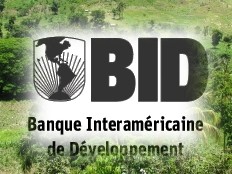|
||||||||||||||||||
| Download the revised decree and electoral calendar, published in the official journal |
|
|
Haiti - Social : IDB approves $27 million for Haiti rural land tenure program 26/04/2012 11:48:51
The Inter-American Development Bank (IDB) yesterday announced the approval of a $27 million grant for a pilot program to improve land tenure security in rural areas in northern and southern Haiti. Agriculture is a predominant economic activity in Haiti, where approximately 60 percent of the population lives in rural areas. Landholdings average less than 1.7 hectares (about 4.2 acres) and are generally of poor quality. By some estimates, nearly two-thirds of 1.5 million rural parcels have no property title. Land tenure informality is widely considered to hinder agricultural productivity, limiting rural incomes. According to this view, the lack of clarity in property rights blocks investments, access to credit and transfers that could lead to more efficient use of land and conservation of natural resources. However, Haiti's land administration system, which functioned reasonably well during the first century and a half of independence, deteriorated over the past decades. These problems are compounded by a stunted institutional capacity. Less than 5 percent of Haiti’s territory is covered by a cadastre and the national positioning network needed to make geo-reference readings is incomplete. Surveyors use outdated methods and deeds are transcribed manually, which makes it difficult to retrieve and verify information. Titling procedures are long and expensive, particularly for smallholders. In order to start redressing this state of affairs, the program will be carried out in two pilot areas covering the Grand Riviere du Nord watershed in the north and the Ravine du Sud and Cavaillon watersheds in the south, where Haiti’s Agriculture Ministry is carrying out several investment projects funded by the IDB and other donors. There are some 40,000 rural households in these areas, which have a variety of ecological conditions and land tenure situations. The program will finance work to clarify private property rights and identify public lands in the two areas, leading to the registration of all parcels in a basic land registry and the identification of their owners and occupants. As a pilot project within this component, the program will finance the registration of deeds to some 1,000 parcels, in order to measure the incremental impact of formal land titling on rural productivity. In parallel, the program will finance activities to improve the quality and efficiency of land administration services provided by various government agencies under the Finance Ministry and the National Cadastre Office as well as by other stakeholders, including surveyors, notaries, lawyers, court clerks and judges. Among other investments, it will modernize Haiti’s geodetic infrastructure in order to improve land surveying and mapping. One of the goals is to reduce the average time to register rural properties to 60 days from 300 days at present and to cut the average cost of the procedures to $150 from about $600 per parcel. The executing agency of the program will be the Executive Secretariat of the Interministerial Committee for Territorial Planning (CIAT), a body of the Prime Minister’s Office responsible for national land use policies. The program draws lessons from other land tenure programs financed by the IDB in Latin America and the Caribbean, as well as from its extensive experience in Haitian rural development programs. In addition, the program is closely coordinated with a French-supported land tenure program focused on urban and peri-urban areas. CIAT’s Executive Secretariat is also receiving technical assistance from the World Bank. As part of its monitoring and evaluation plan, the program will carry out randomized tests to analyze which aspects of land tenure regularization contribute more to higher productivity and better natural resource management. HL/ HaitiLibre
|
|
|
Why HaitiLibre ? |
Contact us |
Français
Copyright © 2010 - 2026 Haitilibre.com |





